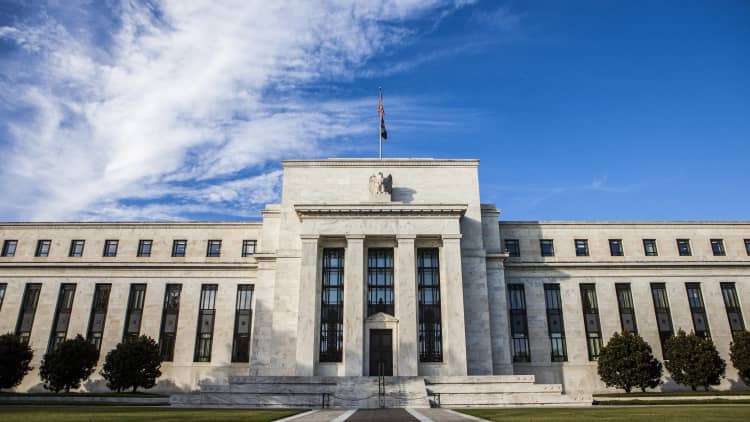
Markets will probably get rockier heading into September's Federal Open Markets Committee meeting and beyond because Federal Chair Janet Yellen is unlikely to telegraph a potential interest rate hike, Allianz Global Investors strategist Kristina Hooper said Wednesday.
That could give some stock pickers the chance to trade the volatility, she said. Allianz expects the Fed to raise in September.
"We think we could see some downward volatility," Hooper told CNBC's "Squawk Box." "Our expectation is that there could very well be a mismatch between market expectations and what the Fed actually does, and that could create opportunities for those who are looking long term and need more equity exposure."
Hooper noted that Yellen has stated she doesn't need to hint at a rate increase because she and market watchers are looking at the same data.
Read More
The CME FedWatch tool—which tracks market reaction on potential changes to the fed funds target rate—showed a 36 percent probability the FOMC would hike at its September meeting. The Fed has held interest rates near zero since December 2008.
After liftoff, investors should expect the path of increases to come in hills and plateaus as the Fed pauses between rate rises to analyze economic data, Hooper said.
Michael Hanson, senior U.S. economist at Bank of America Merrill Lynch Global Research, agreed that a September liftoff was likely and the Fed may leave investors guessing, but he said he wasn't certain its pace would be clear.
"If you look back maybe a month or two ago, it was the case that oil prices stabilized, it looked like the rise of the dollar was largely behind us, and wages were going up. Today all those things have kind of eroded underneath the Fed," he told "Squawk Box."
Read More One of the final big Fed days before mid-September
Hanson added that the Fed may not be dissuaded by China's recent devaluation of its currency, which has been seen as a way to prop up weak exports and support the broader economy.
While a falling yuan would contribute to dollar strength—potentially giving the Fed pause—China's monetary easing may reduce the risk of a hard landing that the market has long feared, which would be a net positive that would give central bankers a green light, he said.
The Fed would likely classify any spillover effect from a weaker yuan on commodities and emerging market as transitory factors, Hanson said, noting that Fed Vice Chairman Stanley Fischer is focused on the domestic economy.


